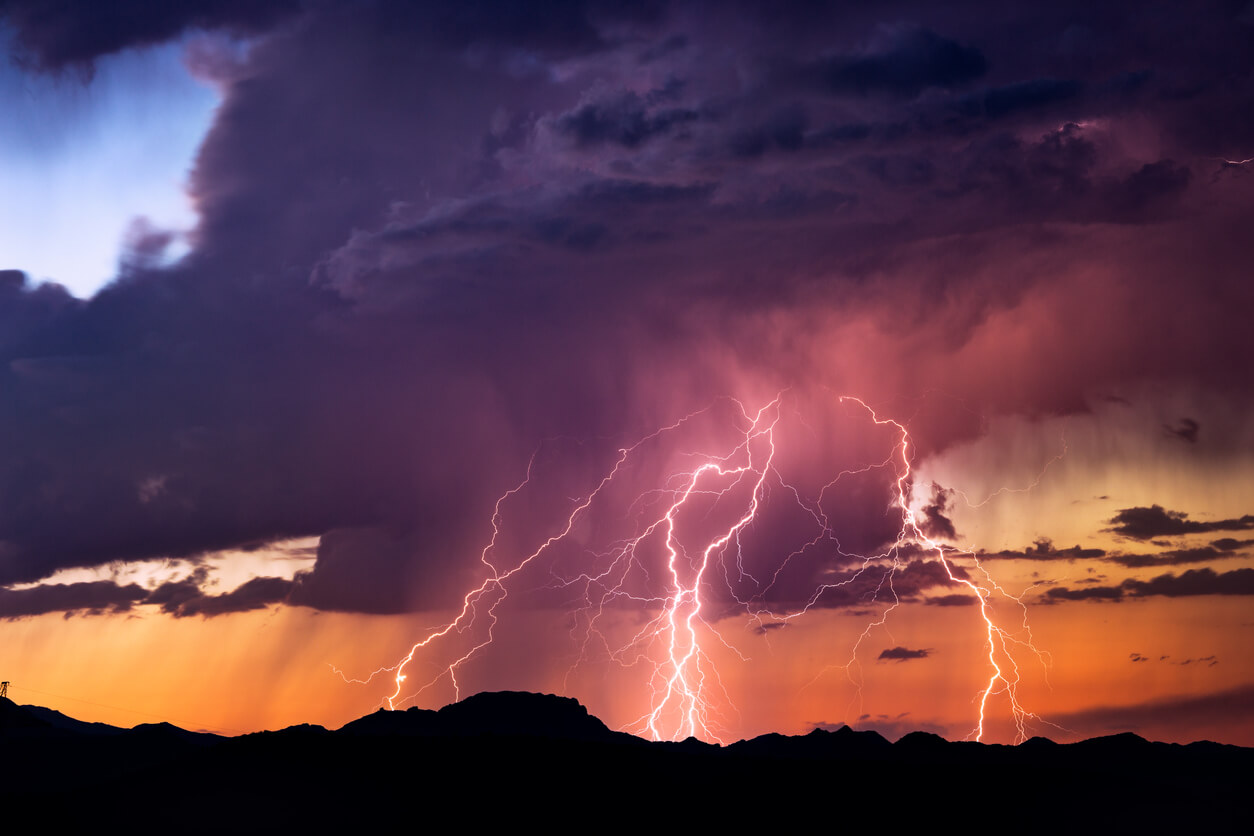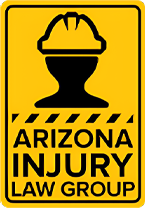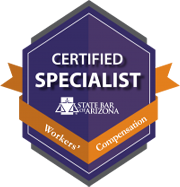|
|
Last Modified on May 11, 2023
While news stories about Hurricane Dorian continue to make the headlines across the country, Arizona is unlikely ever to experience such an event. Arizona has its own set of weather problems that can impact its residents in so many ways, most unpleasantly.
TYPES OF ROUGH ARIZONA WEATHER CONDITIONS
Here is a list of bad Arizona weather conditions that can impact citizens, both at home and at work, or on the job transporting goods.
- Hefty rain, accompanied by hail, depending on temperature,
- Lightning strikes on homes and structures, including vehicles,
- Snow and sleet, including white-out conditions,
- Heavy winds, including tornadoes on rare occasions,
- Depending on location, sandstorms.

TORNADOES
While this is a basic list of what is possible in Arizona, one or more of these bad weather conditions combined can create havoc on parts of the state. For example, on October 6th, 2010, eight tornadoes assaulted Arizona in just one day. Arizona, in 2010 overall, had a total of 17 tornadoes, a new record that broke the previous one from 1972. In 1992, Arizona had reports of 13 tornadoes. However, those living in Minnesota had the worst count of tornadoes, a total of 113, for one year in 2010.
ISSUES ARISING FOR THOSE ON WORKERS’ COMPENSATION
One scenario that can occur for those on workers’ compensation is when a patient is in a hospital and must be moved either to another part of the hospital, a more secure part of the city, or evacuated out to another city and hospital to avoid the tornado, if possible. The impact here is a change of hospital, which must get the patient’s records in order to treat the patient properly, especially if they are, physically, at a high-risk status.
There may not be enough (or any) specific medications on hand to treat the patient who was on a regular treatment schedule. The hospital, aside from getting authorization from the insurance carrier, must now send out for the medications to get them in as soon as possible. Transportation, medication, and alternate treatment charges are now added onto the patient’s Arizona workers’ compensation insurance.
WHEN BAD WEATHER CREATE WORSE SITUATIONS
In a worse scenario, those patients being moved, run into problems during the transport. Susceptible patients may go into cardiac arrest from the fear and stress of the event, or there can be an accident involving the transport vehicle, leaving the patient with further injuries related to the accident, compounding the original injuries. These fees and the treatment must also go on top of what the claim originally offered, as the patient would not have been in that accident if it had not been for the work-related injury that put the patient in the hospital in the first place.
LIGHTNING STRIKES ON VEHICLES
Vehicles are not as safe as you might think when it comes to driving in a heavy storm with lightning strikes that are close to your driving path and unpredictable. When possible, pull over to the side of the road and shut off the engine. Keep your hands in your lap and do not touch metal handles (most are plastic now), radio knobs, or any interior metal components that could conduct a lightning strike to you when it hits the vehicle. You also do not want to step outside the vehicle until the lightning strikes have moved further off. Avoid using any connected communication devices, such as are found in police cars. Go here to read more about how lightning strikes affect your vehicle(s).
If you are having problems with your workers’ compensation claim and medical treatment, call us at once for a free consultation. (480) 300-7273.






